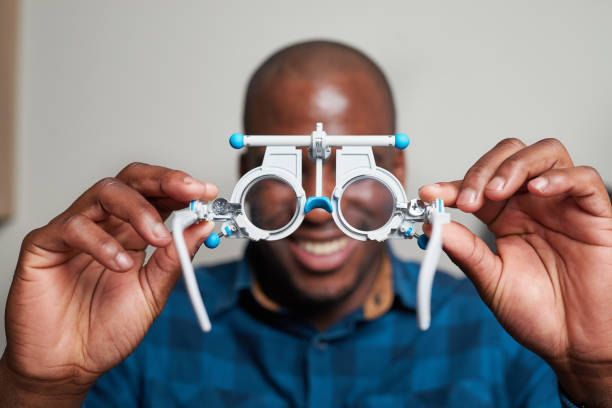From the last edition, you sure should remember a thing or two about recommended glasses? So, before I introduce you to more worthy meals, permit me to test your level of knowledge so far. Afraid you may not get some answers correctly? Hmmm! Then, let me just remind you of the areas covered the last time.
In last month’s edition, we saw that a patient’s complaint is the major determinant of the type of eye glasses to be recommended. Also, we considered that one’s occupation could also influence a doctor’s decision, we did not forget to mention how to clean and care for your eye glasses. You remember? Great!
As we wrap-up on this topic in this edition as promised, we will be diving into other important areas of this topic that is worth your time. Ready? Then let’s go!
Do you know that, there are basic prescription lenses but there are different types. Here are key categories and options available:
Lens Types:
– Single vision for one vision issue (near or far).
– Multifocal lenses like bifocals, trifocals, and progressive lenses for multiple vision needs, with progressives being the most advanced and seamless.
– Polycarbonate and Trivex lenses for impact resistance and safety, often recommended for sports.
– High-index lenses that are thinner and lighter, ideal for strong prescriptions.
Lens Coatings and Features: These have been considered but today we would be mentioning yet another and dwell on it more and that is the UV protection glasses:
– UV (ultraviolet) protection coatings to block harmful sun rays is definitely not a glass you just get off the shelf.
Also there are – non-prescription glasses like:
– Blue light glasses for digital screen protection.
– Reading glasses for close-up work.
– Safety glasses for eye protection during hazardous activities.
Frame considerations:
– Frame style, size, and shape tailored to face shape and personal style is also a crucial point for consideration.
This UV protection lenses is worthy of further consideration and there is need to draw a line of some sort on the same lense type. This knowledge will help you take informed decisions or advice someone else correctly.
UV glasses are special because they have lenses with a coating or material that blocks 99–100% of harmful ultraviolet (UV) rays, including both UVA and UVB rays, which are invisible but can damage the eyes over time. This UV protection helps prevent serious eye conditions such as cataracts, macular degeneration, photokeratitis, and even eye cancer by stopping UV radiation from reaching sensitive parts of the eye like the cornea, lens, and retina.
We want you to know that UV protection lenses differ from regular lenses primarily because they have special coatings or materials that block harmful ultraviolet (UV) rays from reaching your eyes, specifically UVA and UVB rays, thus reducing the risk of eye damage. Regular lenses without UV protection do not filter out these rays and thus offer no such safeguard.





